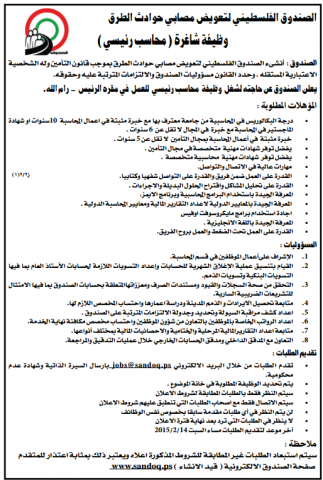الصحيفه:
صحيفة القدس
الصور المرفقة:

مركز خدمات التوظيف ومتابعة الخريجين
جامعة بوليتكنك فلسطين
مركز خدمات التوظيف ومتابعة الخريجين
صندوق بريد: 198
جبل أبو رمان، الخليل، فلسطين
البريد الإلكتروني: alumni@ppu.edu
هاتف:(+970) 2 2235505 (+970) 2 2231921
|
|